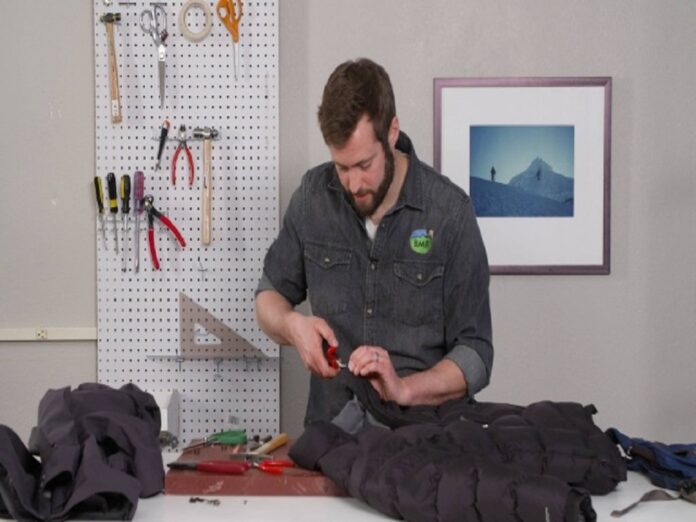When you notice a slight rip in your outdoor gear, you don’t have to throw away the damaged piece and buy a brand-new one. Repairing and maintaining equipment yourself keeps it in great condition and makes it last longer. Another reason to handle your own gear maintenance and repairs is so you save money on the price of new gear.
Patching outdoor equipment may not take as long as you think, and it’s a great way to learn new skills. The next time you notice a smudge on your tent or worn away waterproofing on your hiking boots, use these tips to make them good as new.
Inspect Your Gear Closet
It’s vital to store gear in the right environment to protect it from the elements. Keep everything in a cool, dry space, and use a powerful flashlight. Fenix Lighting makes different kinds of light that offer different brightness levels that work well to visually inspect the storage area for pests that may ruin gear. Fenix flashlights also help to spot holes in camping tents, but more on that later.
After sweeping your gear storage area for pests, consider setting up a humidifier in the space if you live in a humid area. The less moisture around your equipment, the less you need to worry about mold and mildew.
Wash Your Gear
Wash outdoor apparel and clothing regularly to preserve their appearance. You don’t have to wash everything after each outdoor excursion, but get into the habit of checking your gear to see whether anything needs a bit of TLC.
Before tossing clothing items into the washer, check their tags for proper care instructions. Close all the zippers and pockets and tie strings in a loose knot, so nothing gets tangled. Use your flashlight to inspect your washing machine’s soap dispenser for excess detergent, which may ruin gear. If items have waterproof layers, or if you have down jackets or rain jackets, wash them separately.
Clean and Store Your Tent
Camping tents deserve a good cleaning after every trip. After all, you rely on them to keep you safe and warm in the wilderness.
When you return from a trip, set up your tent in a dry space and let it air dry. Then, remove all dirt and debris and spot-clean the equipment. Your tent also needs to “breathe” between uses, so store it in a large bag rather than a compression sack.
Clean and Store Your Sleeping Bag
Like outdoor clothing, you don’t need to clean your sleeping bag after every use. Instead, only wash it when necessary. Clean your bag by zipping it up and sealing all velcro tabs. Toss it into the washing machine with a cleaner designed for down fabric. Then, dry the bag on the lowest setting, using a few tennis balls to knock out lumps of down.
Take Out Batteries From Electronic Devices
Other than a flashlight, you may have other electronic devices and equipment you bring along on outdoor adventures. Keep electronic equipment in tiptop shape by removing batteries between uses, which also prevents the batteries from draining or leaking.
Re-Waterproof Gear
If you have waterproof jackets or pants, expect the coating to wear down after a few washes. Prevent wear and tear by spraying gear with a waterproof, non-toxic coating.
This tip also works on hiking boots to help you get as much use out of them as possible. When you get back from a hike or camping trip, clean debris and dirt from your boots and apply a waterproof coating.
When you take excellent care of your outdoor equipment and gear, it’ll take care of you while out in the wilderness.



















![10 Countries With the Best Healthcare in the World [Statistical Analysis] Countries With the Best Healthcare in the World](https://articleify.com/wp-content/uploads/2025/07/Countries-With-the-Best-Healthcare-in-the-World-1-150x150.jpg)









